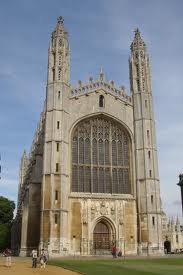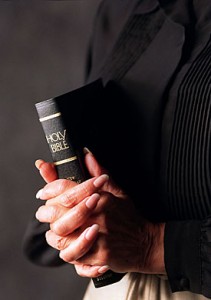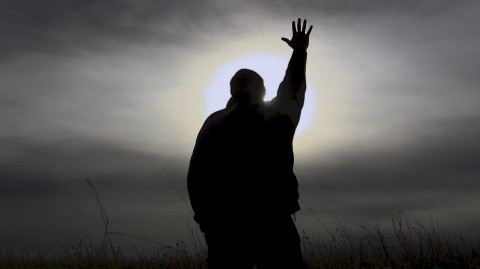As a practicing contemplative and ‘fallen away Catholic,’ I’m both chagrined and amused by the new pope’s recent statement: “In the Curia, there are also holy people, really, there are holy people. But there is a stream of corruption…the ‘gay lobby’ is mentioned and it is true, it is there…we need to see what we can do.” Really?
 If such sentiments don’t end the honeymoon Pope Francis has had in the world press since his unexpected but all too traditional descent, I mean ascent into the papacy, nothing will.
If such sentiments don’t end the honeymoon Pope Francis has had in the world press since his unexpected but all too traditional descent, I mean ascent into the papacy, nothing will.
There’s more than a whiff of scapegoating in the Pope’s statement. A socially conservative pontiff with a winning media persona (read shtick) and purported concern for the poor excoriates gay priests for what his predecessor, Pope Benedict called “the filth in the Church.”
In Pope Francis’s view, the fault is not with the cover-ups and whack-a-mole transfers of pedophiliac priests over decades by bishops, cardinals and the Vatican, hell-bent on sweeping these “emissaries of Jesus” under the brocaded carpets; the fault is with the “gay lobby” in the Curia.
Will Pope Francis’s gambit work? Or has corruption (beyond the banking and bribery scandals) so seeped into the Church that no meaningful reform is possible? Indeed, hasn’t the Roman Catholic Church been steeped in various forms of corruption from its beginning?
Despite or because of Pope Francis’s reform agenda, wealthy Catholics are pushing back, brazenly asserting that the whole idea of a poor church is a historical lie. As a conservative Catholic commentator Vittorio Messori, who was close to Pope Benedict, put it, “Jesus wore Armani.” Huh? He really meant to say: ‘If we could resurrect Jesus in our image today, he would wear Armani.’
The only difference between these disciples of money and the ayatollahs that have been running Iran into the ground is that the cardinals were divested of their political power  centuries ago.
centuries ago.
The moment the Jesus movement became allied and aligned with the Roman Empire, and thereby became the Roman Catholic Church, it lost whatever essence of insight and compassion Jesus attempted to impart.
We have to remember that Jesus did not create the Catholic Church and Christianity. His followers did. Indeed, it wasn’t even his disciples that began the Catholic Church. (I doubt very much that he said anything like, “thou art Peter, and upon this rock I build my church.”)
It was that darned Paul. After ruthlessly torturing and oppressing followers of the Jesus movement, Paul had a hallucination in which Jesus allegedly appeared to him, and thereafter became as good a proselytizer as he was a persecutor.
In the new pope’s newfound emphasis on openness, the question of the meaning and relevance of hidebound religious institutions in the scientific age and wired world should also be open to question. Do religious establishments have anything to do with holiness?
These days the very word holy has an ancient and anachronistic ring to it. Does it have any meaning at all, outside corrupt and crumbling religious organizations of the past? Or are the atheists correct, and there is nothing?
 There is an actuality to holiness, but it has little to do with churches, and cannot be experienced through any of the fabrications of the human mind, which include belief systems, religious institutions and so-called sacred texts. No words, however inspired, are ever sacred. The experiencing of holiness only happens when there is no mediation whatsoever.
There is an actuality to holiness, but it has little to do with churches, and cannot be experienced through any of the fabrications of the human mind, which include belief systems, religious institutions and so-called sacred texts. No words, however inspired, are ever sacred. The experiencing of holiness only happens when there is no mediation whatsoever.
Some of the Catholic mystics apparently had true religious experiences, but they risked excommunication or worse during their lives. Most were only brought into the fold and canonized after, usually long after they died.
The human brain is the only brain on this planet with capacity to be consciously aware of the intrinsic and immanent sacredness of the universe. That insight has the potential to end the divide while retaining the distinction between science and religion. However, the mind must be completely quiet, the heart completely clear, and the senses fully alert for the otherness to come.
Belief systems and theological constructs have nothing to do with holiness, which is completely beyond the human mind’s capacity to grasp and contain, much less verbally, intellectually and artistically convey. That’s why religions have about as much to do with the religious mind, as manufactured DNA has to do with a healthy human body.
For me the ‘otherness’ is usually only felt during sittings in nature. Not because nature is God and I’m a nature-worshipper, but because the mirror of nature quiets the mind, opens the heart and provides direct contact with beauty.
Each experiencing the sacred is like the most beautiful birdsong one has never heard. It lands near the silent mind and non-seeking heart as it will and when it will. Each time it’s a completely new song, though essentially it’s the same music.
The benediction cannot be experienced in time–the psychological movement of time has to end completely for it to flow into one. The person into whom it flows is blest; the person through whom it overflows is holy.
Would Jesus have anything to do with the Roman Catholic Church? Or would he overturn their money tables, and be crucified again for it?
Martin LeFevre

